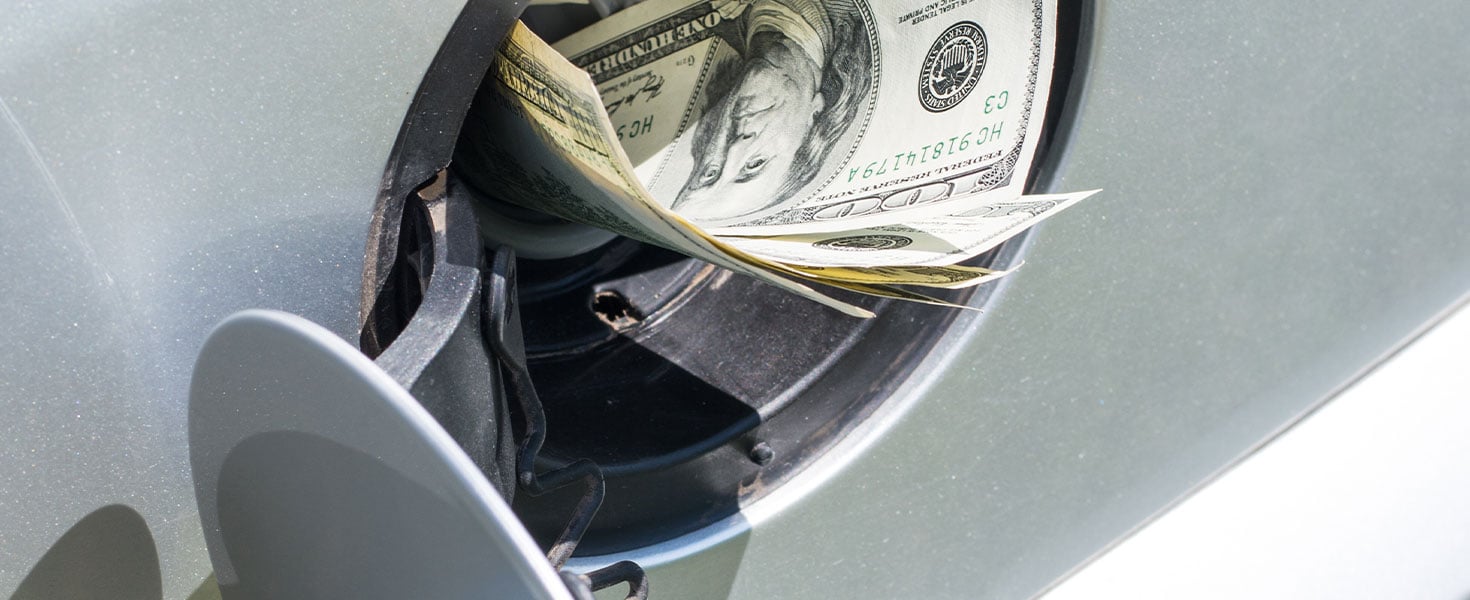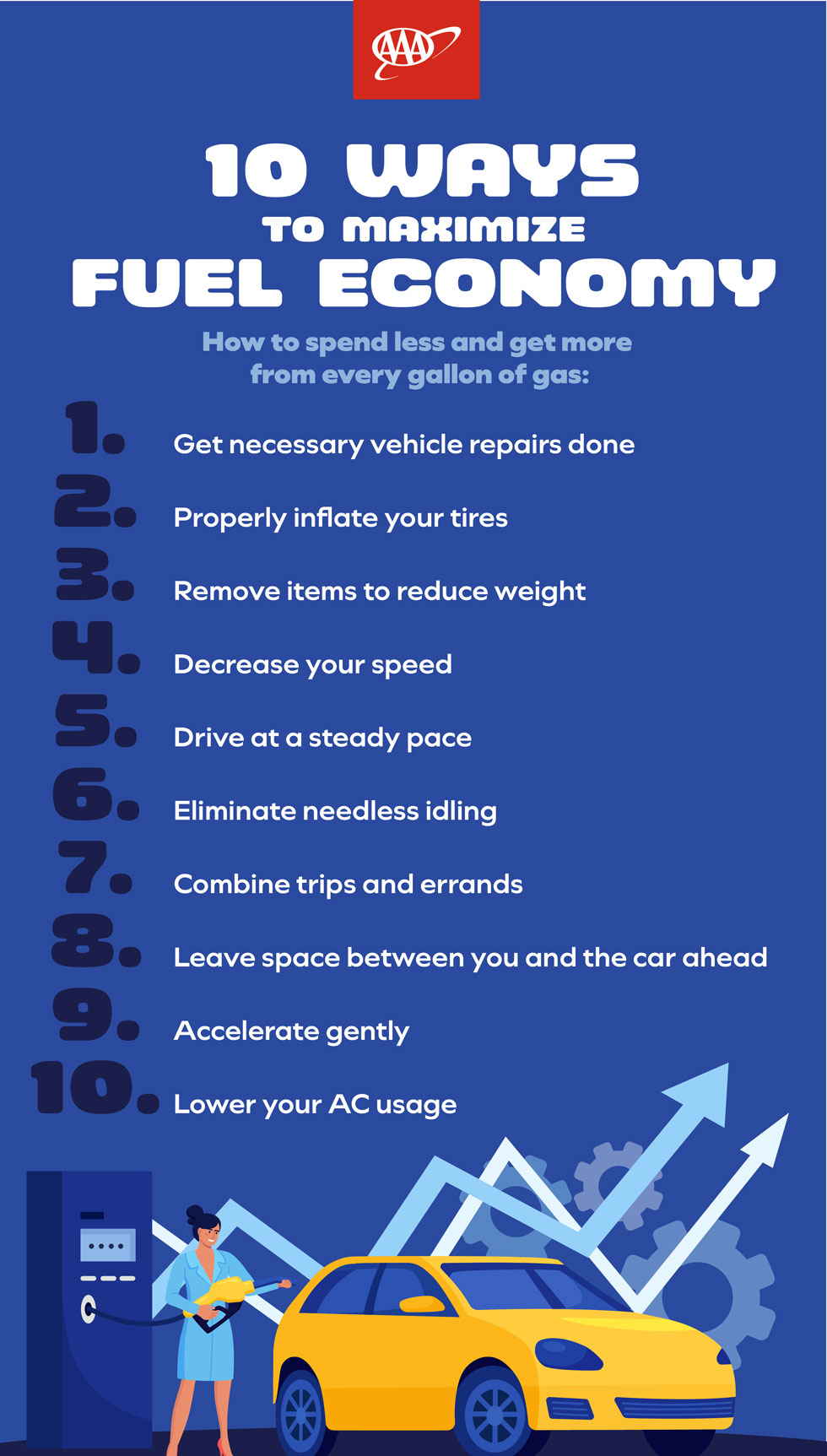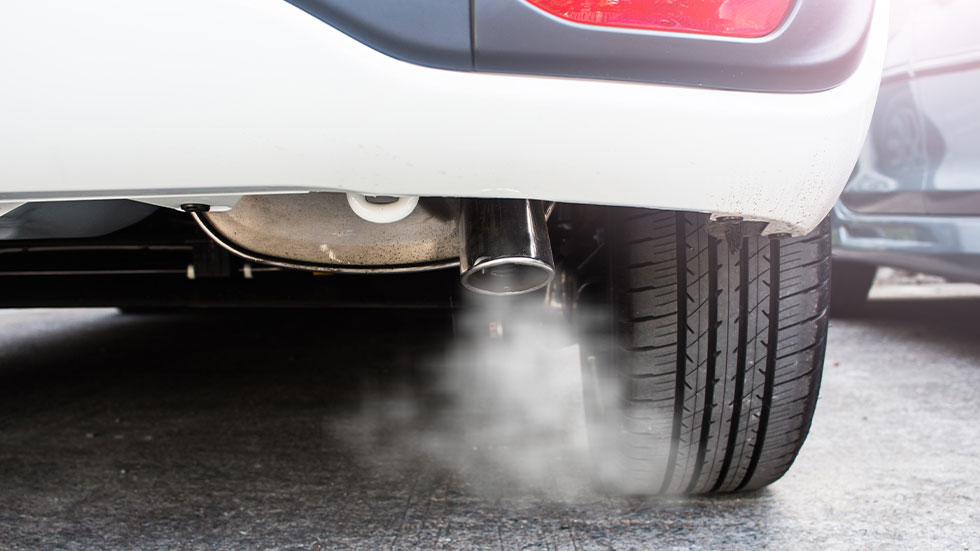10 Ways to Maximize Fuel Economy
How to spend less and get more from every gallon of gasoline


High gasoline prices can put a real squeeze on your budget. Here are 10 tips to reduce gas usage so that you’ll visit the pump less often.

1. Do necessary repairs
Address any obvious engine problems to ensure maximum efficiency. If the “Check Engine” light is on, do the necessary repairs.
2. Properly inflate the tires
Low tire pressures increase fuel consumption.
3. Reduce weight
Take unnecessary items out of the trunk or cargo area, and remove an unused roof rack or cargo box. Automakers work hard to reduce weight, often doing it an ounce at a time, in their pursuit of better fuel economy. You can help by shedding unneeded weight.
4. Slow down
AAA has found that reducing speed by 5 to 10 miles an hour can improve fuel economy by 7 to 14 percent.
5. Drive at a steady pace
Avoid speeding up and slowing down unnecessarily.

6. Eliminate needless idling
Warming up a properly operating car, even in winter, is unnecessary. If your car has an automatic stop/start function, which turns the engine off while the car is stopped and then restarts it when the driver releases the brake pedal to go, don’t turn it off. While you can disable the automatic stop/start function if needed, remember that an idling car gets 0 miles per gallon.
7. Combine trips
Combine trips to minimize the cold starts that reduce fuel economy. Don’t go to the grocery store in the morning and the cleaners in the afternoon if you can do both errands on a single trip.
8. Avoid jackrabbit starts
Instead of jackrabbit starts, accelerate gently. Rapid acceleration when the traffic light turns green often leads to rapid braking at the next traffic light. Both take a toll, up to 40 percent, on fuel economy.
9. Have a generous following distance
Leave a generous following distance to the car ahead. This practice not only increases safety, but it also allows you to slow down simply by lifting your foot off the accelerator so that you avoid unnecessary braking when traffic in front of you slows. Every time you brake needlessly, you waste gas.
10. Lower AC usage
Avoid using air conditioning if you can. On days that are warm but not humid, it is often possible to cool the car with air conditioning and then switch over to the car’s vent setting to maintain comfort. (Note that using the heater does not significantly affect fuel economy in gas-powered cars.)
The fuel economy improvements when using these recommendations can add up to less money at the pump and more money in your pocket.
